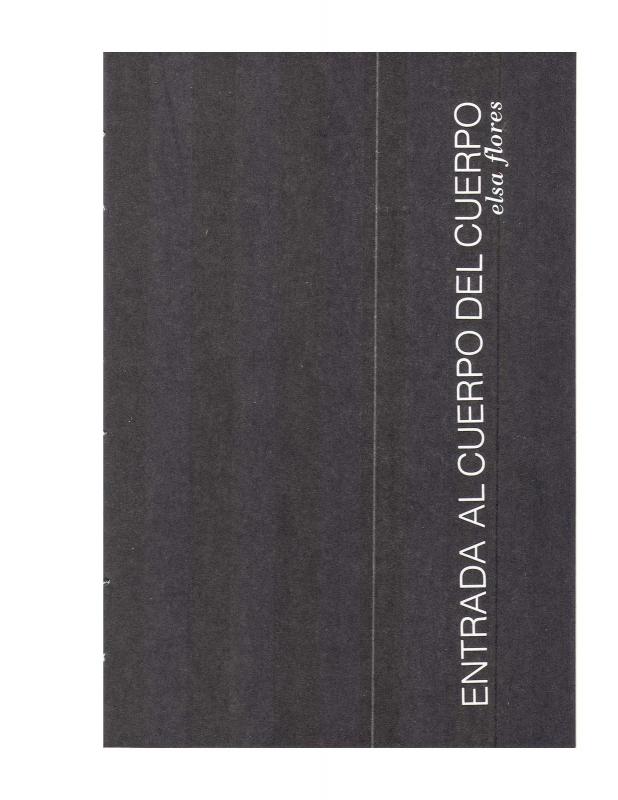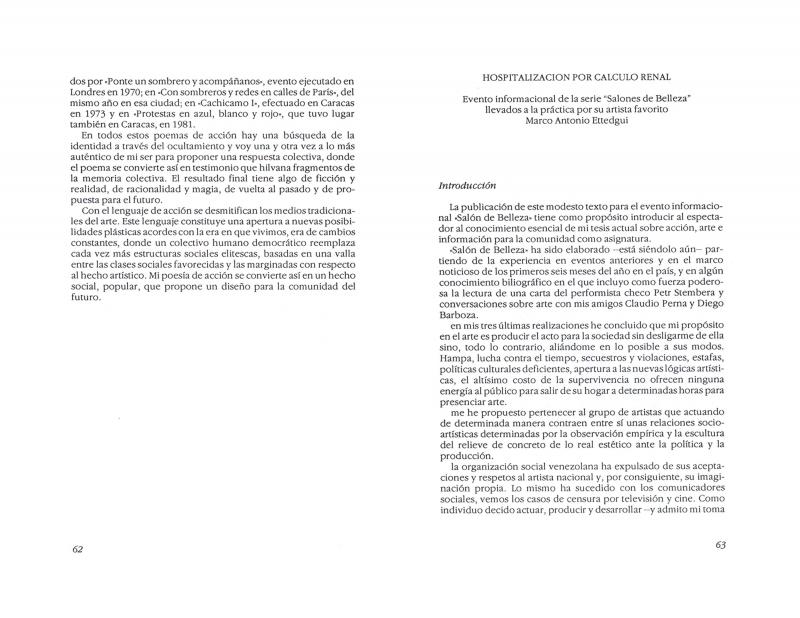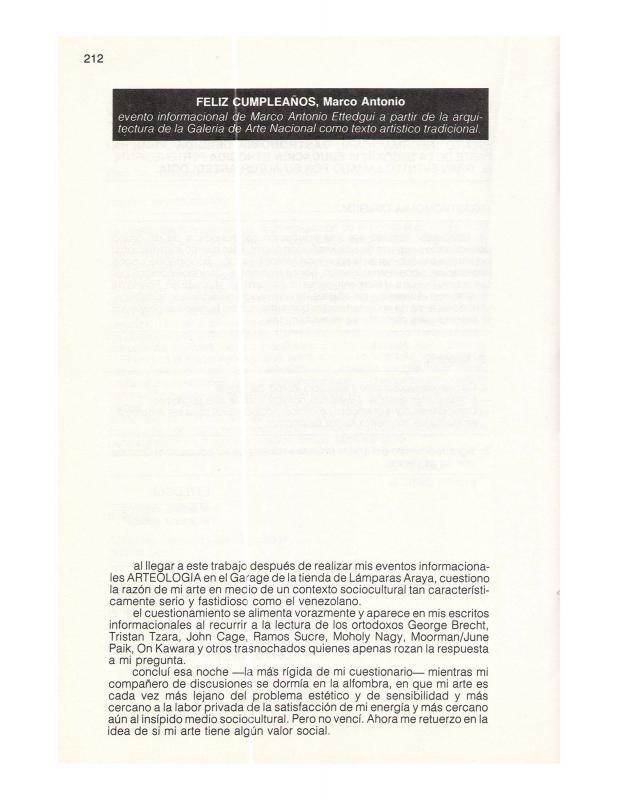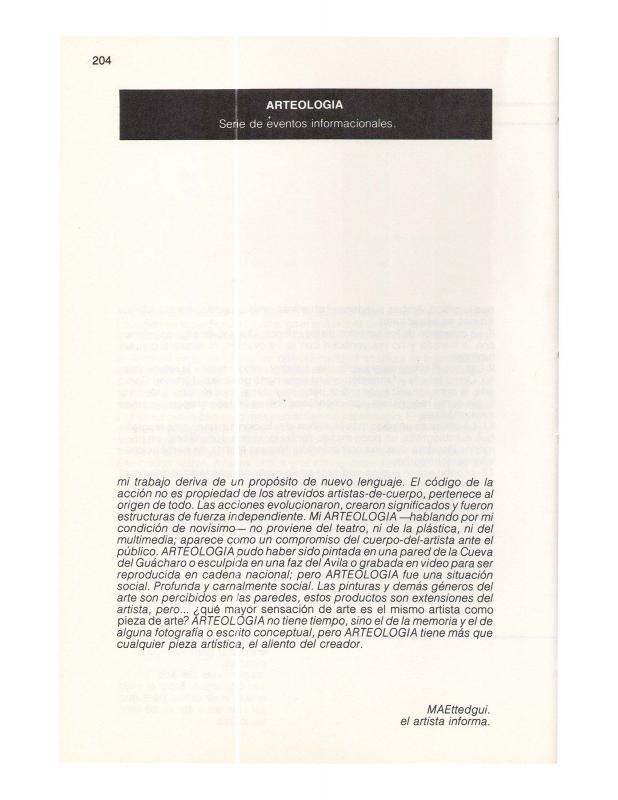In this document, the communicator, dramatist, and Venezuelan performer Marco Antonio Ettedgui (1958−81) reports on his informational work, Higiene Corporal. Mens Sana in Corpore Sano and the three sections that form its “itinerary.” The text is representative of Ettedgui’s talent as an artist using body language in conjunction with a mastery in communicative techniques. The work is written in the third person and in the form of a program in order to inform the public; however, it is a program that in addition to being informative is profoundly critical, like the event. This is particularly true of the third section (Mens Sana), where Ettedgui intends to induce the spectator to reflection through body language action by the artist and by the questions (that are) formulated in the text, on a subject as controversial as the nexus between madness and society, a problem hardly addressed in Venezuelan art, but with some notable exceptions, such as the work of Javier Téllez created in video.
The conclusion that Ettedgui arrives at—that despite exercise the mind can remain insane—is drastically opposed to the classically postulated mens sana in corpore sano not bequeathed by the Romans, says the author scathingly, but by “the first self-indulgents.” His strategy to approach the spectator (reader) via questions reaffirms his intention to motivate others and awaken reflection in each spectator on the difficulties of a “sound mind” in a society such as ours. On this conundrum, Ettedgui pondered: “What sustains our sick ethereal brain this way?” “What area in our contemporary society is in charge of mental imbalance?” “Has history befallen us with lies?” “Is personal mental illness of concern to the social system?” “Is [basic] sanitation a relative concept?” “Is the concept of disease equally relative?” In the strongest possible way he evokes poets, philosophers, and renowned personalities associated with madness: Rimbaud, Ramos Sucre, Artaud, Nietzsche, and Sade. Strikingly noticeable was the fact that Ettedgui never lost his communicative ability or “informational” sense; the artist signs it, as well as other writings with his name, reiterating in a phrase what he considered his role as an artist: “The artist informs, the artist educates, the artist affects.”
“Higiene Corporal. Mens Sana in Corpore Sano” is published in ETTEDGUI, arte-información para la comunidad (Caracas: Ediciones Oxígeno, 1985), the only book that compiles the artist’s vast writings of poetry, theatre, and performance, the final section introduced by an essay by Elsa Flores, “Entrada al cuerpo del cuerpo” [ICAA digital archive (doc. no. 1152721)]. Other texts by Ettedgui include: “Hospitalización por cálculo renal. Evento informacional de la serie ‘Salones de Belleza’ llevados a la práctica por su artista favorito, Marco Antonio Ettedgui” (doc. no. 865734); “Feliz cumpleaños, Marco Antonio. Evento informacional de Marco Antonio Ettedgui a partir de la arquitectura de la Galería de Arte Nacional como texto artístico tradicional” (doc. no. 1152597); and “Arteología. Serie de eventos informacionales” (doc. no. 1152565).




